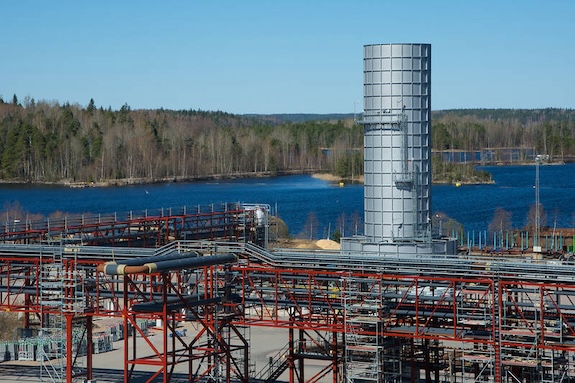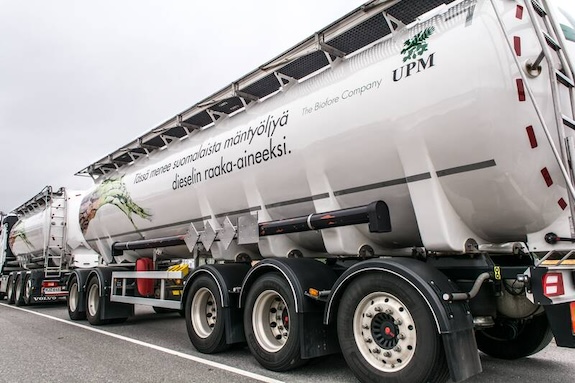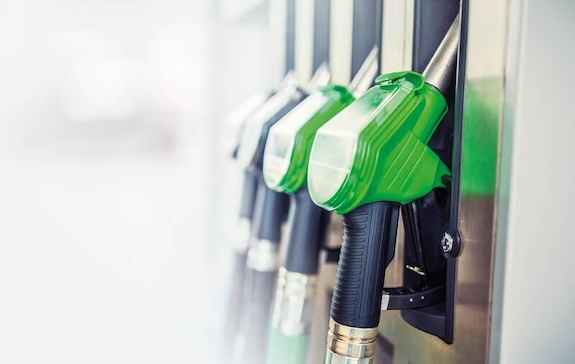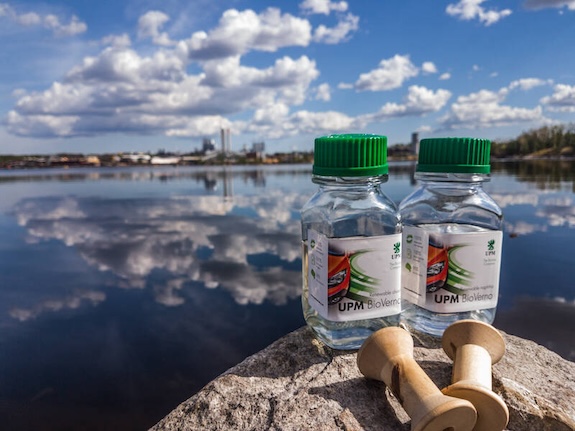Advanced biofuels will continue to play a key role in reducing transport emissions
 Christian Librera, who was appointed Senior Vice President of UPM Biofuels in 2023, discusses the company’s role and the future of advanced biofuels in global decarbonising efforts. After several years’ experience in the field of biofuels, he states it is now more important than ever to acknowledge advanced biofuels as part of the solution in mitigating climate change.
Christian Librera, who was appointed Senior Vice President of UPM Biofuels in 2023, discusses the company’s role and the future of advanced biofuels in global decarbonising efforts. After several years’ experience in the field of biofuels, he states it is now more important than ever to acknowledge advanced biofuels as part of the solution in mitigating climate change.
UPM has moved from being a traditional forest industry player to pioneering renewable fuels and chemicals, enabling customers to significantly reduce their dependency on fossil feedstock and improve their CO2footprint. As part of this transformation UPM is investing in a significant growth area – UPM Biorefining – focused on scaling refineries producing a variety of renewable fuels and chemicals made from sustainable biomass.
In the global pursuit of decarbonisation the advanced biofuels industry has been leading the change toward a sustainable future in transportation. In this sector climate change mitigation is not just an ambitious goal but a core industrial policy and target.

While electric vehicles (EVs) will take an increasing share of passenger transport, advanced biofuels will continue to play a key role in reducing transport emissions. They will be an important part of a sustainable fuel mix alongside e-fuels and electricity in the decades to come.

Christian Librera, Sr. Vice President, Biofuels, UPM
Among the different approaches that industries are taking in this race to reduce emissions and transition to net zero, the power of collaboration cannot be overstated, according to Christian Librera, Senior Vice President of UPM Biofuels.
“We need to raise awareness about the potential that lies in all the different technologies and solutions we can use to mitigate climate change. It gives me a real sense of pride and purpose to be part of a company like UPM, a front runner in wood-based advanced biofuels. We are driving the change in the industry,” he says.
Librera emphasises the pivotal role of advanced biofuels in offering a readily available solution to reduce emissions – one that fits into existing distribution systems.
“With advanced biofuels there is no need to wait — we are offering a ready possibility to contribute towards the decarbonisation of the transportation sector right now. We are not competing with other solutions, but complementing them, because energy is limited and so are resources,” he adds.
Harnessing the potential of advanced biofuels in hard-to-abate sectors
The global demand for biofuels is expected to rise substantially by 2030. Alongside electrification and other low carbon technologies, advanced biofuels seamlessly integrate into a broader decarbonisation strategy, especially in hard-to-abate sectors such as heavy-duty transport, trucking, large scale passenger transport, maritime and aviation.

On the regulatory side we also see that regulatory schemes, such as ReFuelEU, will accelerate demand for sustainable fuels and aviation fuels in the future. After 2025 the EU’s SAF (Sustainable Aviation Fuels) mandate will kick in which will provide a positive demand outlook in that sector as well.
“Advanced biofuels will continue to play a key role in helping reduce emissions in sectors where electrification is not an easy or viable option. In the aviation sector particularly there will be a notable increase in demand for biofuels – numerous airlines have already actively incorporated sustainable aviation fuels (SAF) into their operations,” he says.
Librera reveals that SAF production is also being considered by UPM. The company has announced in February this year that it has initiated proceedings to qualify its renewable fuel as sustainable aviation fuel.
Enabling reduction of CO2 emissions by 440,000 tonnes per year
In addition to the operating biorefinery in Lappeenranta, Finland, UPM is looking into a potential second next generation biorefinery which would be located in Rotterdam, the Netherlands. With the potential Rotterdam project UPM Biofuels aims to significantly reduce the carbon footprint of road transport and aviation, while also replacing fossil raw materials for chemicals and plastics with renewable alternatives.
UPM Biofuels has already made significant strides in reducing emissions through the existing Lappeenranta facility, which is the first commercial-scale biorefinery, with a capacity of 130,000 tonnes, to produce renewable wood-based diesel and naphtha. The facility enables the reduction of CO2 emissions by around 440,000 tonnes per year. This equals roughly the annual emissions of approximately 400,000 passenger cars in Europe.

The tangible reduction in CO2 emissions demonstrates the potential of advanced biofuels to make a substantial difference.
Exciting to be in the driver’s seat of the transition to a greener future
UPM Biofuels’ commitment to its innovative and ambitious growth plans, sustainable feedstock use, and technological advancement are what drive Librera in his own journey at the company.
“The Biofuels team is dedicated to building a sustainable future, beyond fossils. It’s not just talk, we are committed to being in the driver’s seat of this transition to a greener future for us, our families, and the planet. And in my role, I’ve been given the trust and empowerment to further drive and accelerate this transition,” says Librera.
The biggest privilege of this role, he emphasises, is the fact that he gets to be a part of the solution and actively contribute to a net zero future.
“For me, the greatest thing would be if in the future I can fly on a vacation with my children in an airplane that is powered by sustainable aviation fuel from UPM. Can you imagine how that would feel? I would be so proud that I could be a part of this success story,” a hopeful Librera says.
Category: Thought Leadership, Top Stories














